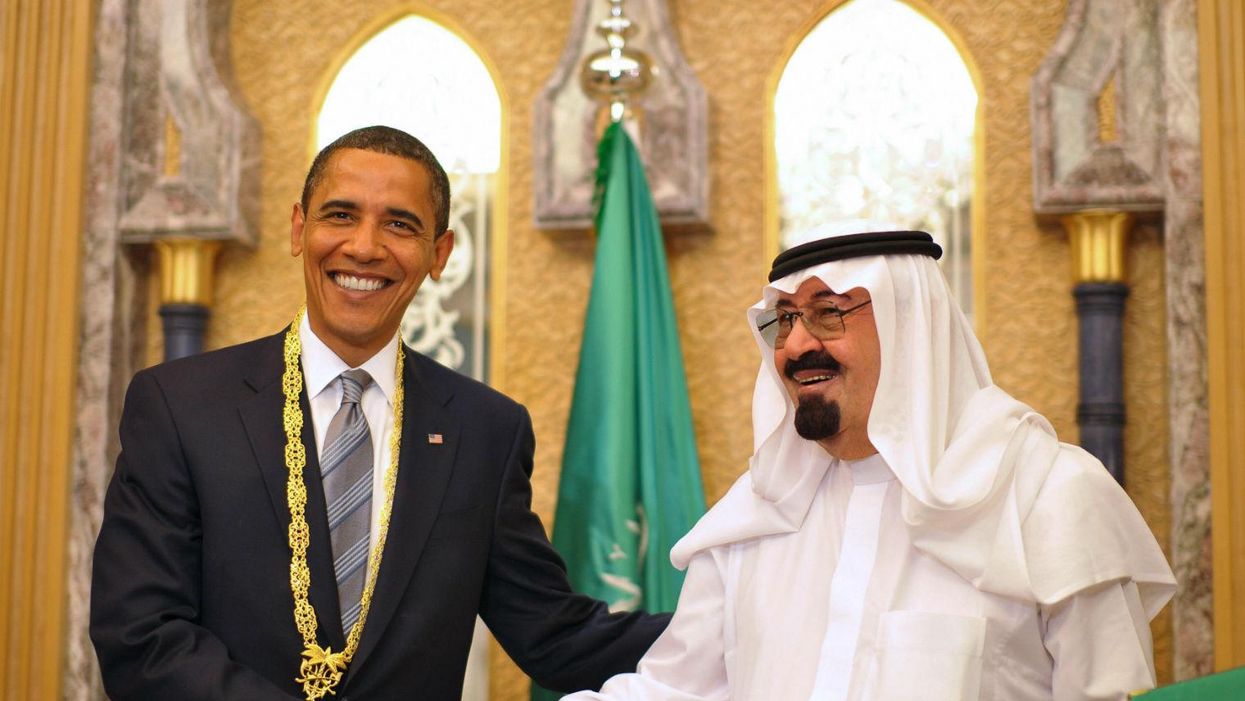News
Bethan McKernan
Mar 13, 2016

Picture: MANDEL NGAN/AFP/Getty Images
The Atlantic's series of interviews with Barack Obama has generated headlines this week over the outgoing US president's criticisms of UK foreign policy in Libya.
Lost in the news cycle, however, is the revelation that Obama does not intend for the US to continue its policy of unwavering support of Saudi Arabia and other Sunni states.
Jeffrey Goldberg writes:
[Obama has] questioned, often harshly, the role that America’s Sunni Arab allies play in fomenting anti-American terrorism. He is clearly irritated that foreign policy orthodoxy compels him to treat Saudi Arabia as an ally.
The Gulf country is the home of Wahabism, which emphasises sectarian divides between Sunni and Shia Islam, and has fuelled much conflict and jihadism in the Middle East.
The US has been unwilling to criticise the repressive oil state since 15 Saudi nationals attacked the US on 9/11, even though Saudi money has been funnelled into the ongoing conflicts in Syria, Iraq, Afghanistan and Yemen, and funds radical mosques and madrassas around the world.
The Obama administration's turning point, Goldberg says, was in August 2013, when the president refused to launch air strikes in Syria.
The strikes would probably have triggered regime change in Damascus: a move that would have meant the US effectively played out Saudi Arabia's proxy-war wishes in the country.
Obama's public criticism of the state is unprecedented, Patrick Cockburn points out in today's Independent on Sunday - but a lasting departure in US foreign policy now hinges on the results of November's presidential election:
It will become clearer after the US presidential election how far Mr Obama’s realistic take on Saudi Arabia, Turkey, Pakistan and other US allies and scepticism about the US foreign policy establishment will be shared by the next administration.
The omens are not very good since Hillary Clinton supported the invasion of Iraq in 2003, intervention in Libya in 2011 and bombing Syria in 2013.
More: Syria peace talks and Saudi Arabia military movements: Here's what you need to know
More: Eight signs the UK's relationship with Saudi Arabia is far too cosy
Top 100
The Conversation (0)













